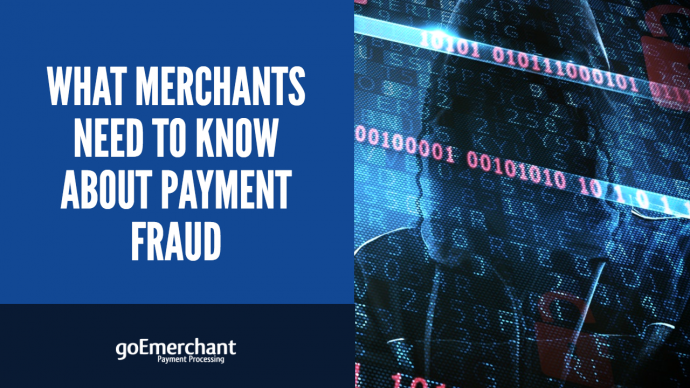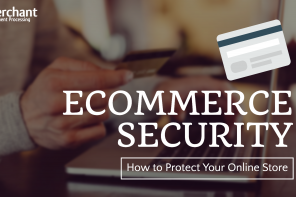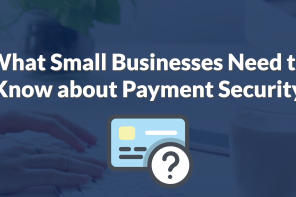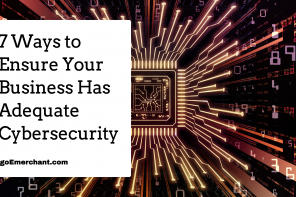Payment fraud isn’t going away anytime soon. It’s a harsh reality all merchants have to take into account. In fact, according to The Nilson Report, plastic card fraud is expected to grow to $31.67 Billion by 2020. And that’s only part of the fraud problem merchants face.
The challenge with payment fraud is there isn’t just one kind of fraud impacting business owners bottom lines. Compromised card fraud, account fraud, synthetic fraud, chargeback fraud, friendly fraud — these are only a handful of the types of fraud merchants deal with on a regular basis. With the rise of CNP fraud as more spending shifts online, merchants also have to tackle payment fraud across multiple channels.
What merchants need to understand about payment fraud is that they must have the right strategies in place to proactively manage, detect and prevent the spread of fraud across their merchant accounts. We’ve gathered some important insights on what merchants need to know about payment fraud, and how they can implement strategies to get ahead of this rapidly-growing problem.
Payment Fraud Types Flooding the Market
When EMV hit the market, the theory was that credit card fraud would decrease. As data has shown, this doesn’t appear to be a cut and dry situation. Besides the rise of CNP fraud, the influx of identity theft fraud is also on the rise. In fact, in 2016 alone, identity theft fraud hit $16 billion, with the leading cause being credit card theft.
In the 2017 True Cost of Fraud study, data indicated U.S. Businesses spend $2.66 to combat every dollar of fraud. For merchants of any size, this can dig deep into your bottom line. One of the most troubling types of fraud for merchants is chargeback fraud. An example of this type of fraud is known as Friendly Fraud, when a customer disputes a transaction, regardless of the legitimacy. Sometimes this is a result of “buyer’s remorse,” while other times it is a result of a consumer deliberately defrauding a merchant. Similarly, consumers sometimes dispute a purchase they forgot they made in the past. Regardless of why a dispute was initiated, it flags the transaction for chargeback fraud.
There’s also traditional criminal fraud, which is when a person fraudulently uses another person’s account to make a purchase. This also contributes to the rise of chargebacks, which can be costly and impact merchant’s relationships with their issuers.
Increasingly, there are also other types of payment fraud, such as account fraud — where a fraudster takes over another person’s account and makes unauthorized transactions. To that same degree, another problematic fraud trend is synthetic fraud — where entirely new identities are created by a fraudster to open up new accounts that aren’t legitimate. Each of these above-mentioned types is contributing to the rise of payment fraud that many merchants are increasingly worried about.
How the Rise of Fraud Impacts Business Growth
Anytime a customer account gets compromised, that consumer is less likely to go back to that specific retailer. This can harm a business’s reputation and lead to customer churn. Shoppers want to know that when they use their credit card online or in your store, that they are safe from fraudsters’ reach. Once that trust is broken, it becomes even more difficult to encourage customer loyalty.
Beyond impacting customer relationships, increased fraud can also impact a merchant’s payment industry relationships. Merchants who aren’t safeguarding their systems will cause issuers to flag the merchant account as problematic, which can lead to increased fees and the termination of an industry relationship altogether. Too much fraud causes liability issues for merchants, which is where having the right payments processing partner comes into the mix.
Why the Right Payments Processing Partner Matters
Above all else, security matters when choosing your payments processing partner. Working with a partner that offers industry-leading security technology is the only way to ensure you are protecting your payment systems and your customers. It’s important to choose a payment provider that is fully equipped with the latest built-in security features.
Merchants should look for key security protocols, such as PCI compliance, point-to-point encryption (P2PE), and tokenization abilities. Look for a payment partner that offers highly-sophisticated tools such as a secure card vault and embedded iFrame security. To combat rising fraud, merchants should integrate solutions that are EMV-certified to reduce liability burdens in case a breach does occur. Choosing an EMV-certified payment processor also eliminates the need for you to get your EMV card brand certification and increases the overall security of your systems.
As the trends have shown, payment fraud is always going to be a headache for merchants, but the burden doesn’t have to be all on their shoulders. Working with the right payments processing partner can allow merchants to worry less about the security of their payments and the liability associated with payments fraud, and focus more on growing their customer base, driving revenues and growing their bottom line.




